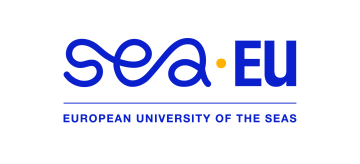Languages and literature
Littératie océanique : observations linguistiques, données terminologiques et modélisations lexicographiques basées sur corpus (français-italien)
Her research is mainly focused on corpus linguistics, digital humanities applied to the study of specialty discourses (fields: marine biology, blue economy, environmental and animal rights discourses - animal causes), morpholessical and semantic creativity in contemporary French, vocabulary teaching in L2 French. He is a member of several national and international research projects on the automatic and semi-automatic processing of language from small, medium and large corpora.
Center of Oral Literature Studies "Ataíde Oliveira" (CEAO)
a) Oral Literature Databases
CRILLS - Interdepartmental Research Centre for Foreign Languages and Literatures
The CRILLS carries out research and educational activities in the field of foreign languages, cultures, and literatures, particularly in the areas of (English and French):
- lexicology and lexicography;
- terminology and terminography;
- discourse analysis;
- corpus linguistics and stylistics;
- literary criticism and translation;
- cross-cultural and genre studies;
- new digital literacies, webwriting, and their multimodal/media dimension.
Centre for Tourism Research, Development and Innovation (CiTUR - Algarve Hub) – Tourism, Culture, Society and Language
Tourism, Culture, Society and Language - It includes the cultural and historical dimensions, the sociological and anthropological approaches to tourism, and the ‘tourism products’ (e.g. culture and religion, heritage, literature, gastronomy and a broad range of the so-called ‘new’ forms of tourism). Ethics and social responsibility in tourism have now become consolidated research topics. Locally-lived language practices also play a major role in tourism and mobility practices.
Research project "Ent-Fesselung der Sprache"
In the projected research field, discourses about the attitudes and evaluations of expected standard languages and their features are empirically analysed in a comparative way by using a multilingual corpus of discourses contributions.
SEA-EU European Network in American Studies (SEENAS)
The SEENAS research group is a part of European network of specialists in American Studies within the developing SEA EU Alliance. The SEENAS network is open to North and South American issues, countries and regional areas. The three main objectives of the network are to open up onto inter-disciplinary research and collaboration, provide more academic visibility to American Studies at national and international levels, and reaching out to non-academic audiences to make this research more accessible.
Intercultural Communication and Neurolinguistics Laboratory
neurolinguistics, Language for Specific Purpose, sociolinguistics, communication, management
Pagination
- Page 1
- Next page

